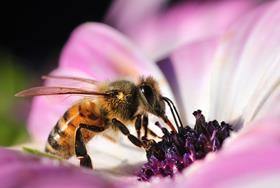
Nature is declining globally at rates unprecedented in human history, a landmark new report has warned.
The studyfrom the Intergovernmental Science-Policy Platform on Biodiversity and Ecosystem Services (IPBES), which is the most comprehensive of its kind, found that ecosystems are deteriorating quicker than ever.
Around one million animal and plant species are now threatened with extinction, many within decades, which is more than ever before in human history. The average abundance of native species in most major land-based habitats has fallen by at least 20 per cent, mostly since 1900.
Compiled by 145 expert authors from 50 countries over the past three years, the report assesses environmental changes over the past five decades and the relationship between economic development pathways and their impacts on nature. It also offers a range of possible scenarios for the coming decades.
Negative trends in nature will continue until 2050 and beyond in all of the policy scenarios explored in the report, except those that include transformative change, due to the projected impacts of increasing land-use change, the exploitation of organisms, and climate change.
The study highlights the importance of adopting integrated management and cross-sectoral approaches that take into account the trade-offs of food and energy production, infrastructure, freshwater and coastal management, and biodiversity conservation.
Also identified as a key element of more sustainable future policies is the evolution of global financial and economic systems to build a global sustainable economy, steering away from the current limited paradigm of economic growth.
“The health of ecosystems on which we and all other species depend is deteriorating more rapidly than ever,” said IPBES chair Sir Robert Watson. “We are eroding the very foundations of our economies, livelihoods, food security, health and quality of life worldwide.”
He added: “The report also tells us that it is not too late to make a difference, but only if we start now at every level from local to global.
“Through ‘transformative change’, nature can still be conserved, restored and used sustainably… By transformative change, we mean a fundamental, system-wide reorganization across technological, economic and social factors, including paradigms, goals and values.”
The report found that more than a third of the world’s land surface and nearly 75 per cent of freshwater resources are now devoted to crop or livestock production.
The value of agricultural crop production has increased by about 300 per cent since 1970, and approximately 60 billion tons of renewable and non-renewable resources are now extracted globally every year, having nearly doubled since 1980.
In addition, land degradation has reduced the productivity of 23 per cent of the global land surface, and up to £442 billion ($577 billion) in annual global crops is at risk from pollinator loss.
This has put 100-300 million people at increased risk of experiencing floods and hurricanes due to the loss of coastal habitats and protection.
Meanwhile, plastic pollution has increased tenfold since 1980, and fertilisers entering coastal ecosystems have produced more than 400 ocean ‘dead zones’, with a combined area greater than that of the UK.
Joanna Lewis, policy director at the Soil Association, commented:“This report from IPBES issues a stark warning – our over-use of the land and sea is eroding the natural foundations of our livelihoods and societies, andwe simply cannot halt climate change without halting soil degradation.
“Soils hold three times more carbon than the atmosphere and all life depends on it for food. The rapid deterioration of our soils and the collapse of biodiversity is an environmental emergency alongside climate change.
“We urgently need policy that supports farmers to adopt nature friendly agroecological farming methods like agroforestry and organic, which put natural systems first and chemicals last.We call on the government to prioritise soil health and agroecology in the upcoming Agriculture and Environment Bills.”



